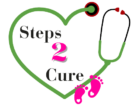Adrenalectomy
Acne is a skin condition characterized by the clogging of hair follicles with oil and dead skin cells, leading to the formation of whiteheads, blackheads, or pimples.
While it is most prevalent among teenagers, it can affect individuals of all ages. Although effective treatments exist, acne can be persistent, with slow healing of acne and bumps. As one begins to subside, others may emerge. Depending on its severity, acne can result in emotional distress and scarring of the skin. Initiating treatment at an early stage reduces the risk of such complications.

Symptoms
Symptoms of acne can vary based on the severity of the condition and may include:
- Whiteheads (closed clogged pores).
- Blackheads (open clogged pores).
- Small red, smooth bumps (papules) and pimples (pustules), which are papules with pus at their tips.
- Large, solid, painful lumps under the skin (nodules).
- Painful, pus-filled lumps under the skin (cystic lesions).
Acne typically manifests on the face, forehead, chest, upper back, and shoulders.
When to access Medical Care
It is advisable to seek medical care for acne treatment in the following situations:
Severe Acne: If you have severe acne with deep cysts or nodules, medical intervention is often necessary to prevent scarring and manage the condition effectively.
Persistent Acne: If over-the-counter treatments haven’t yielded positive results after a reasonable period, and your acne persists or worsens, consulting a healthcare professional is recommended.
Emotional Distress: If acne is causing significant emotional distress, affecting your self-esteem or mental well-being, it’s important to seek medical guidance and support.
Risk of Scarring: If you are at risk of developing scars due to your acne, early medical intervention can help minimize scarring and promote better skin healing.
Diagnose
Acne is typically diagnosed through visual examinations, but to identify the underlying causes or sources of these acne lesions, your doctor may recommend a hormone check-up, especially during the commencement of the menstrual cycle. The comprehensive examination includes testing levels of:
- Testosterone.
- Sex hormone-binding globulin (SHBG).
- Free androgen index (FAI).
- Dehydroepiandrosterone sulfate (DHEAS).
- 17-hydroxyprogesterone.
- Synacthen test of adrenal stimulation by adrenocorticotropic hormone (ACTH).
- Luteinizing hormone (LH) and follicle-stimulating hormone (FSH).
- Prolactin.
Recovery process
Recovery duration varies, contingent on factors like patient characteristics, chosen procedure, and the extent of severity.
Why entrust your care to us?
At Steps 2 Cure, our foundation of trust is built upon several key pillars that ensure your confidence in our services and expertise. Our team comprises highly qualified professionals with extensive experience in their respective fields. Their knowledge and skills enable us to offer you the best possible care and solutions for your medical needs. We understand that each individual is unique, and so are their healthcare requirements.
That’s why we prioritize tailoring our treatments and approaches to your specific circumstances, ensuring that you receive care that is truly designed for you. You are at the heart of everything we do. Your comfort, concerns, and aspirations guide our efforts. Our compassionate approach ensures that you feel valued and supported throughout your healthcare experience.
To commence the treatment procedure, you can start by forwarding your questions via WhatsApp at (+91 9999652964) or by sending an email to care@steps2cure.com. Our team will ensure a swift response to your queries.
Still have a Query?
Your health and peace of mind matter to us, and we’re dedicated to addressing any inquiries you may have with care and expertise. Feel free to reach out.
Subscribe To Our Newsletter
Stay in touch with us to get latest news and special offers.

